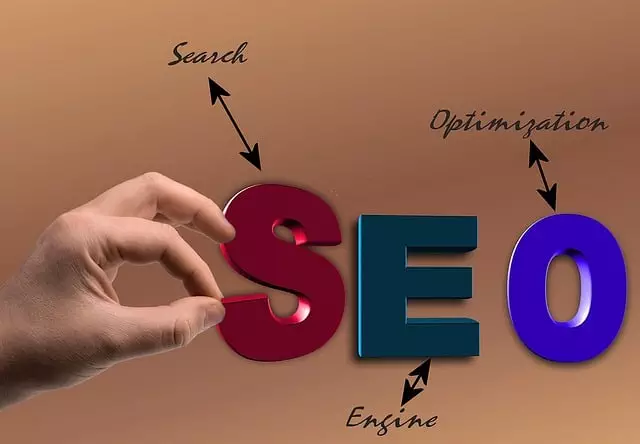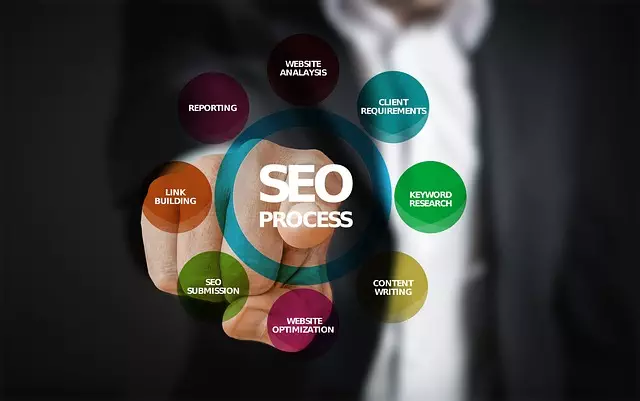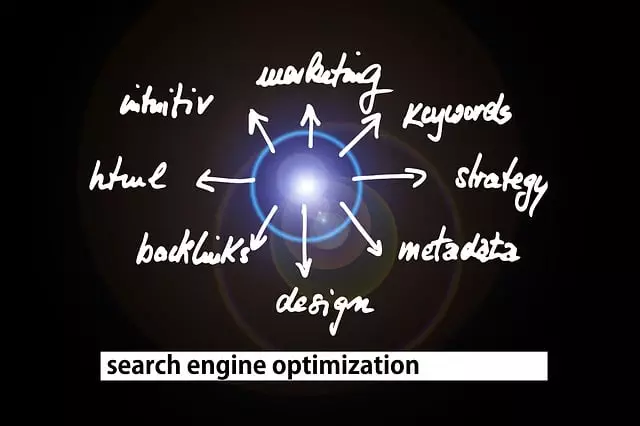Search Engine Optimization (SEO) is a powerful tool for businesses aiming to enhance their online presence and attract organic traffic. By understanding search engine algorithms, companies can optimize their websites to rank higher on SERPs, increasing visibility and credibility. SEO's key benefits include driving targeted traffic, boosting brand awareness, improving user engagement, and ultimately elevating conversion rates. Through strategic content optimization, backlink building, and a focus on user experience, businesses can establish a strong online foundation, fostering trust and solidifying their market position. Measuring success through KPIs allows for data-driven SEO adjustments, ensuring continued growth in the dynamic digital landscape.
The digital landscape is a competitive space, and showcasing your website’s potential is paramount. This article explores the benefits of Search Engine Optimization (SEO), a powerful tool for boosting online presence. We delve into how SEO enhances visibility, drives organic traffic, and fosters user trust. Understanding its role in digital marketing strategies is essential for any business aiming to thrive. Discover how optimizing your site can lead to increased brand credibility, long-term cost savings, and a significant competitive edge over rivals.
Understanding Search Engine Optimization (SEO) and Its Role in Digital Marketing

Search Engine Optimization (SEO) is a strategic process aimed at enhancing a website’s visibility and ranking in search engine results pages (SERPs). It involves understanding how search engines crawl, index, and rank websites, and then optimizing content and technical aspects to meet these criteria. SEO plays a pivotal role in digital marketing as it drives organic traffic to websites, which can lead to increased brand awareness, improved user engagement, and ultimately, higher conversion rates.
By implementing effective SEO practices, businesses can tap into the vast potential of online visibility. It allows them to reach their target audience more efficiently, ensuring that when users search for relevant products or services, their website appears among the top results. This strategic approach not only boosts website traffic but also fosters trust and credibility among potential customers, making SEO a powerful tool in today’s digital landscape.
Enhanced Online Visibility: How SEO Boosts Website Traffic

Search Engine Optimization (SEO) is a powerful tool for boosting online visibility and driving traffic to your website. When you optimize your site with relevant keywords, content strategies, and technical adjustments, search engines like Google can more easily understand and index your pages. This leads to higher rankings in search results, making your website more visible to potential customers or readers.
Higher search engine rankings mean that when people look for services or products related to what you offer, your website is more likely to appear near the top of the results page. This increased visibility translates directly into more organic traffic, as users are more inclined to click on the top few links displayed. With effective SEO strategies, businesses can attract a steady stream of targeted visitors, fostering growth and establishing a stronger online presence.
The Power of Organic Search Results: Why SEO Matters

In today’s digital landscape, the power of organic search results cannot be overstated. When potential customers are looking for products or services, they largely rely on search engines like Google to guide them. The benefits of Search Engine Optimization (SEO) are multifaceted; it boosts your website’s visibility, making it more likely to appear in the top search results. This increased visibility drives organic traffic to your site, which is crucial for business growth and brand recognition.
SEO also fosters trust and credibility. Websites that rank higher on search engine result pages (SERPs) tend to be perceived as more reliable and authoritative by users. By optimizing your content with relevant keywords, creating high-quality backlinks, and ensuring a seamless user experience, SEO helps establish your brand as a trusted source in your industry. This not only attracts more visitors but also encourages them to engage with and convert on your site.
Improved User Experience: Making Your Website Search-Engine Friendly

Optimizing your website for search engines isn’t just about boosting your online visibility; it’s also about enhancing the user experience. When you implement Search Engine Optimization (SEO) strategies, you make your website more accessible and intuitive for visitors. This means ensuring fast loading times, mobile responsiveness, and a well-structured information architecture that allows users to find what they’re looking for quickly. A search-engine-friendly site encourages users to explore further, reducing bounce rates and increasing time spent on the page, which are key metrics for any successful online presence.
By focusing on these aspects, you create a positive feedback loop where satisfied users become potential advocates, sharing your content and linking back to your site, thereby improving your search engine rankings. This interconnectedness of improved user experience and better SEO is what drives organic growth and ensures your website stands out in the competitive digital landscape.
Increased Brand Credibility and Trustworthiness through SEO Practices

Search Engine Optimization (SEO) plays a pivotal role in establishing and enhancing a brand’s credibility and trustworthiness in today’s digital landscape. When businesses implement effective SEO practices, they signal to potential customers that their website is reliable and authority-driven. This is primarily achieved through improving online visibility and ranking higher on search engine results pages (SERPs). Higher rankings are often associated with increased trust, as users naturally tend to favor websites that appear at the top of search results.
By consistently delivering valuable content optimized for relevant keywords, brands can establish themselves as thought leaders in their respective industries. This credibility is further strengthened when reputable sources link back to the website, indicating its value and reliability. As a result, consumers are more likely to trust the brand’s products or services, leading to higher conversion rates and long-term customer retention.
Long-Term Cost-Effectiveness: Investing in SEO for Sustainable Growth

Investing in Search Engine Optimization (SEO) for your website is a strategic move that offers long-term cost-effectiveness and sustainable growth. Unlike paid advertising which provides immediate but temporary results, SEO focuses on building a strong online presence that ranks higher over time. By optimizing your site’s content, structure, and performance, you attract organic traffic from search engines, which can lead to increased brand visibility and customer acquisition.
The benefits of SEO extend beyond initial setup costs. As your website establishes its authority and credibility in the digital landscape, it becomes a reliable source of potential customers seeking your products or services. This long-term strategy ensures a steady stream of targeted traffic, contributing to higher conversion rates and better ROI. Additionally, SEO’s impact on brand reputation cannot be overlooked; consistent top rankings enhance your online reputation and foster trust among users.
Competitive Advantage: Outperforming Competitors with Strategic SEO

In today’s digital landscape, where consumers rely heavily on search engines for information and services, the benefits of Search Engine Optimization (SEO) cannot be overstated. One of the most significant advantages is the ability to gain a competitive edge. Strategic SEO enables businesses to outperform their competitors by improving their online visibility and ranking higher in search results. When potential customers search for products or services relevant to your business, an optimized website ensures that it appears among the top results, capturing more organic traffic.
By implementing effective SEO strategies, companies can establish themselves as industry leaders. This is achieved through a combination of keyword research, high-quality content creation, and technical optimizations that make websites user-friendly and search engine-friendly. As a result, businesses not only attract more visitors but also foster trust and credibility among their target audience, giving them a distinct advantage in the market.
Measuring Success: Key Performance Indicators (KPIs) for Evaluating SEO Efforts

Measuring success is a critical aspect of any digital marketing strategy, and SEO (Search Engine Optimization) is no exception. To evaluate the effectiveness of your SEO efforts, it’s essential to track specific Key Performance Indicators (KPIs). These KPIs offer valuable insights into the visibility, traffic, and conversion capabilities of your website in search engine results pages (SERPs).
Some key metrics include organic traffic growth, bounce rate, average session duration, and conversion rates. Organic traffic growth indicates the success of your SEO strategy in attracting visitors through natural search results. Bounce rate measures how many visitors leave your site after viewing only one page, which can help identify issues with user experience or content relevance. Average session duration and conversion rates provide insights into how engaged and interested visitors are in your website’s content and offers. By regularly monitoring these KPIs, you can make data-driven adjustments to your SEO strategy, maximizing the benefits of Search Engine Optimization for your website.
Future Trends in SEO: Staying Ahead in the Evolving Digital Landscape

The digital landscape is constantly evolving, and so too are the algorithms that drive search engines. Staying ahead in this ever-changing environment requires a forward-thinking approach to SEO strategies. Future trends suggest an increased focus on user experience and content quality. With voice search becoming more prevalent, optimizing for natural language queries will be essential. Additionally, artificial intelligence (AI) is set to play a significant role, enabling personalized search results and dynamic content delivery.
To keep pace with these developments, businesses must embrace innovative SEO techniques. This includes creating comprehensive, informative content that caters to the user’s journey, from initial interest to post-purchase engagement. Implementing structured data markup and optimizing for local search can also provide a competitive edge. By staying informed about emerging trends and adapting practices accordingly, websites can ensure they remain visible and relevant in the digital realm.



